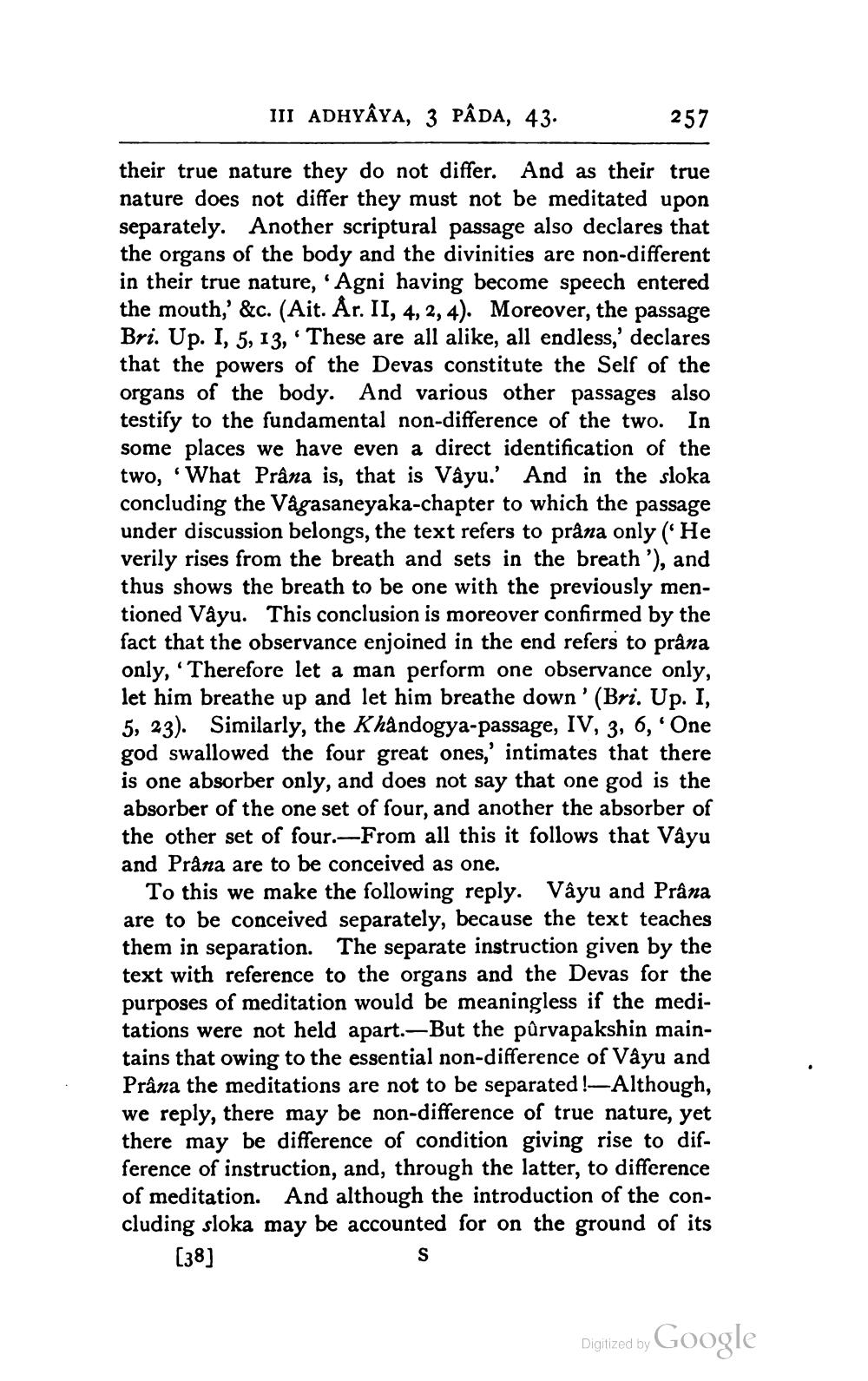________________
III ADHYAYA, 3 PÂDA, 43.
257
their true nature they do not differ. And as their true nature does not differ they must not be meditated upon separately. Another scriptural passage also declares that the organs of the body and the divinities are non-different in their true nature, ' Agni having become speech entered the mouth,' &c. (Ait. År. II, 4, 2, 4). Moreover, the passage Bri. Up. I, 5, 13, . These are all alike, all endless,' declares that the powers of the Devas constitute the Self of the organs of the body. And various other passages also testify to the fundamental non-difference of the two. In some places we have even a direct identification of the two, What Prâna is, that is Vâyu.' And in the sloka concluding the Vågasaneyaka-chapter to which the passage under discussion belongs, the text refers to prána only ("He verily rises from the breath and sets in the breath '), and thus shows the breath to be one with the previously mentioned Vayu. This conclusion is moreover confirmed by the fact that the observance enjoined in the end refers to prâna only, 'Therefore let a man perform one observance only, let him breathe up and let him breathe down' (Bri. Up. I, 5, 23). Similarly, the Khandogya-passage, IV, 3, 6, 'One god swallowed the four great ones,' intimates that there is one absorber only, and does not say that one god is the absorber of the one set of four, and another the absorber of the other set of four.-From all this it follows that Vâyu and Präna are to be conceived as one.
To this we make the following reply. Vậyu and Prâna are to be conceived separately, because the text teaches them in separation. The separate instruction given by the text with reference to the organs and the Devas for the purposes of meditation would be meaningless if the meditations were not held apart.—But the pûrvapakshin maintains that owing to the essential non-difference of Vayu and Prâna the meditations are not to be separated !-Although, we reply, there may be non-difference of true nature, yet there may be difference of condition giving rise to difference of instruction, and, through the latter, to difference of meditation. And although the introduction of the concluding sloka may be accounted for on the ground of its
[38]
Digitized by
Digitized by Google




